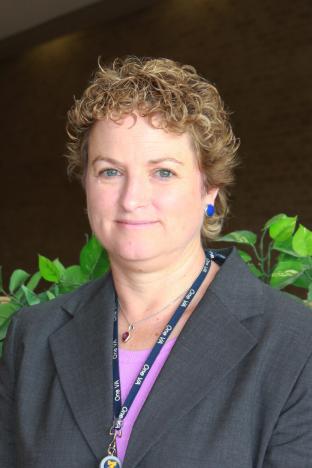MI-BP: mHealth to Improve Blood Pressure Control in Hypertensive African Americans
Lorraine Buis, PhD, MSI, Principal Investigator
Funded by the National Institutes of Health, National Heart, Lung, and Blood Institute ($2,970,128)
This study seeks to improve hypertension-related outcomes in a cohort of African Americans with uncontrolled hypertension between the ages of 25 and 55, through the use of MI-BP, a comprehensive, multiple health behavior change mobile intervention. This research is guided by three specific aims:
- Determine the effect of MI-BP on blood pressure control at one year, compared with usual care controls, in a one-year RCT.
- Determine the effect of MI-BP on secondary outcomes (physical activity, sodium intake, medication adherence) compared to usual care controls, in a one-year RCT.
- Evaluate the cost-effectiveness of MI-BP compared to usual care methods.
Early Audiology Referral in Primary Care (EAR-PC): Improving Detection of Hearing Loss
Philip Zazove, M.D., Principal Investigator
Funded by the National Institutes of Health, National Institute on Deafness and Other Communication Disorders, Department of Health and Human Services ($1,624,469)
Dr. Zazove is lead investigator of this R21/R33 study, which seeks to increase hearing loss screenings for patients 55 and older by utilizing electronic clinical management tools in primary care setting and multimedia. The MiChart research team has designed a Best Practice Alert (BPA) which notifies primary care providers (PCPs) of HL assessment opportunities and allows clinicians to refer directly and efficiently to audiology specialists. The multimedia project, guided by Micheleen Hashikawa, M.D., also created a video to address physicians’ mental models of hearing loss. The investigation has expanded to look at patients’ decision-making around hearing testing and adoption of hearing aids. The EAR-PC study has partnered with the Beaumont Family Medicine network and Elie Mulhem, M.D., Associate Professor, Oakland University William Beaumont School of Medicine to successfully include 5,500 patients in the pilot study. Dr. Zazove anticipates over 20,000 patients in the R33 phase.
The research is guided by three aims, to:
-
Evaluate whether the EAR-PC program increases PCP identification of patients with mild to moderate HL compared to baseline data.
-
Evaluate whether the EAR-PC program increases appropriate PCP referral of patients with mild to moderate HL to audiology specialists.
-
Utilize both qualitative and quantitative inquiry to investigate how successful PCPs implement the intervention, identifying processes and tools that will allow this project to successfully scale
Speaking Their Language: Using Social Media And Texting To Create An Adolescent-Centered Approach To Healthy Weight Gain During Pregnancy
Tammy Chang, MD, MPH, MS, Principal Investigator
Funded by the National Institutes of Health, Eunice Kennedy Shriver National Institute Of Child Health & Human Development
This mixed-methods study will develop an adolescent-centered tailored eHealth intervention to reduce excess pregnancy weight gain. Researchers will integrate quantitative analyses using nationally representative data with social media mining and corresponding qualitative interviews with pregnant and postpartum adolescents. The goals of the study are to:
- Determine which US pregnant adolescents (aged ≤21 years) are at high risk for significant excess pregnancy weight gain;
- Identify the baselin knowledge, beliefs, and factors that influence excess pregnancy weight gain among adolescents
- Design and test a scalable healthy diet and exercise eHealth intervention tailored to at-risk pregnant adolescents.
Decision Aid to Technologically Enhance Shared Decision Making (DATES)
Masahito Jimbo, M.D.,Ph.D., M.P.H., Principal Investigator
Funded by National Institutes of Health
Since Colorectal Web (CW) is an interactive decision aid to facilitate Shared Decision Making for average-risk adults needing colorectal cancer screening, this randomized controlled study will compare CW to a non-interactive web-based CRC screening program.
Modeling Professional Attitudes and Teaching Humanistic Communication in Virtual Reality (MPathic VR)
Michael D. Fetters, M.D., M.P.H., M.A., Principal Investigator
Funded by The National Institutes of Health
The M-Pathic VR II project will rigorously evaluate the extent that the newly successful "virtual reality" software program (developed in Phase I) can enhance medical school curricula in professionalism, empathy, and in patient-centeredness (using verbal and non-verbal communication skills) as well as the ACGME competencies when treating a terminally ill cancer patient.
Enhancing the Sustainability of Depression Disease Management Support for Primary Care
Michael S. Klinkman M.D., M.S., Principal Investigator
Funded by Ethel & James Flinn Foundation
Designing a more efficient self-management component for M-DOCC. During the first six months of the project, we will create a series of self-management modules that can be delivered in paper or Web-based format, each linked to a self-assessment instrument, and integrate this into the M-DOCC case management software. During Year 2, we will evaluate the success of this new module by tracking the proportion of new enrollees who complete each module, identify a goal, make progress, or reach a goal, as well as the length of time enrollees remain active in the program. We will also conduct qualitative interviews of enrollees to assess its perceived value.
MyVoice- Real-time Text Messaging Polling to give Adolescents a Voice
Tammy Chang, MD, MPH, MS, Principal Investigator
There is a critical need to understand the opinions and needs of adolescents regarding issues that affect them. Until interventions and policies are tailored to meet adolescents’ needs, they will continue to experience worse health and social outcomes. Thoughts and beliefs of adolescents are difficult to illicit through traditional surveys and interviews because they often have difficulty verbalizing their beliefs due to their ongoing cognitive, social, and emotional development, and limited health literacy. We will use text messaging, a platform used by nearly all teens, to ask weekly open-ended and multiple-choice questions to allow adolescents to ‘speak’ to researchers in real-time using a method they are familiar with.
Great Lakes Research Into Practice Network (GRIN)
Michael S. Klinkman M.D., M.S., Co-Investigator
Funded by Michigan Academy of Family Physicians Foundation
GRIN is a statewide primary care research network of office practices in family practice, internal medicine, pediatrics, obstetrics and gynecology, and independent-practice nursing. Its goal is to assist primary care researchers to conduct studies in primary care settings. This, in turn, will help practitioners apply research findings that are reflective of the complexities of primary care practice.










